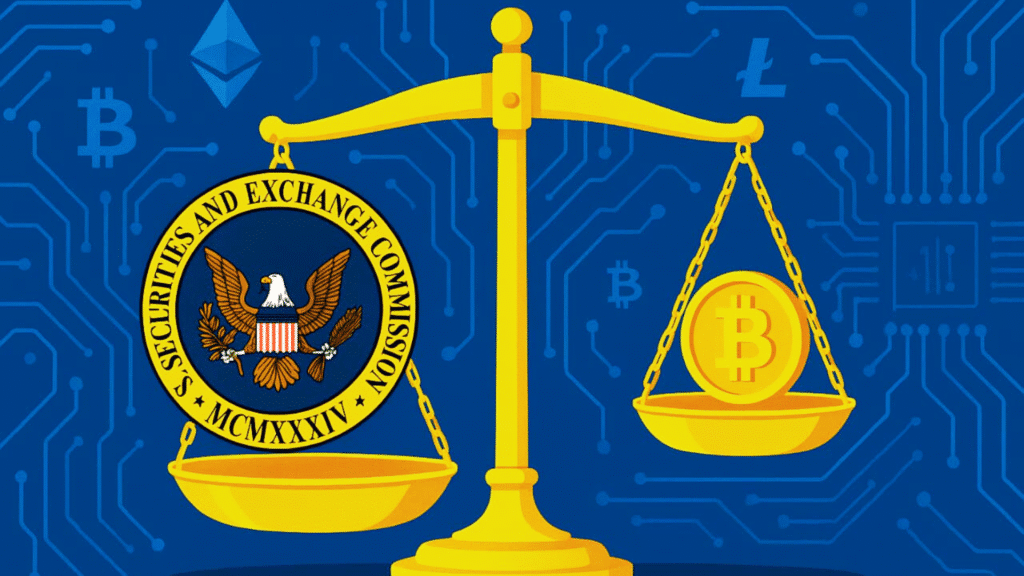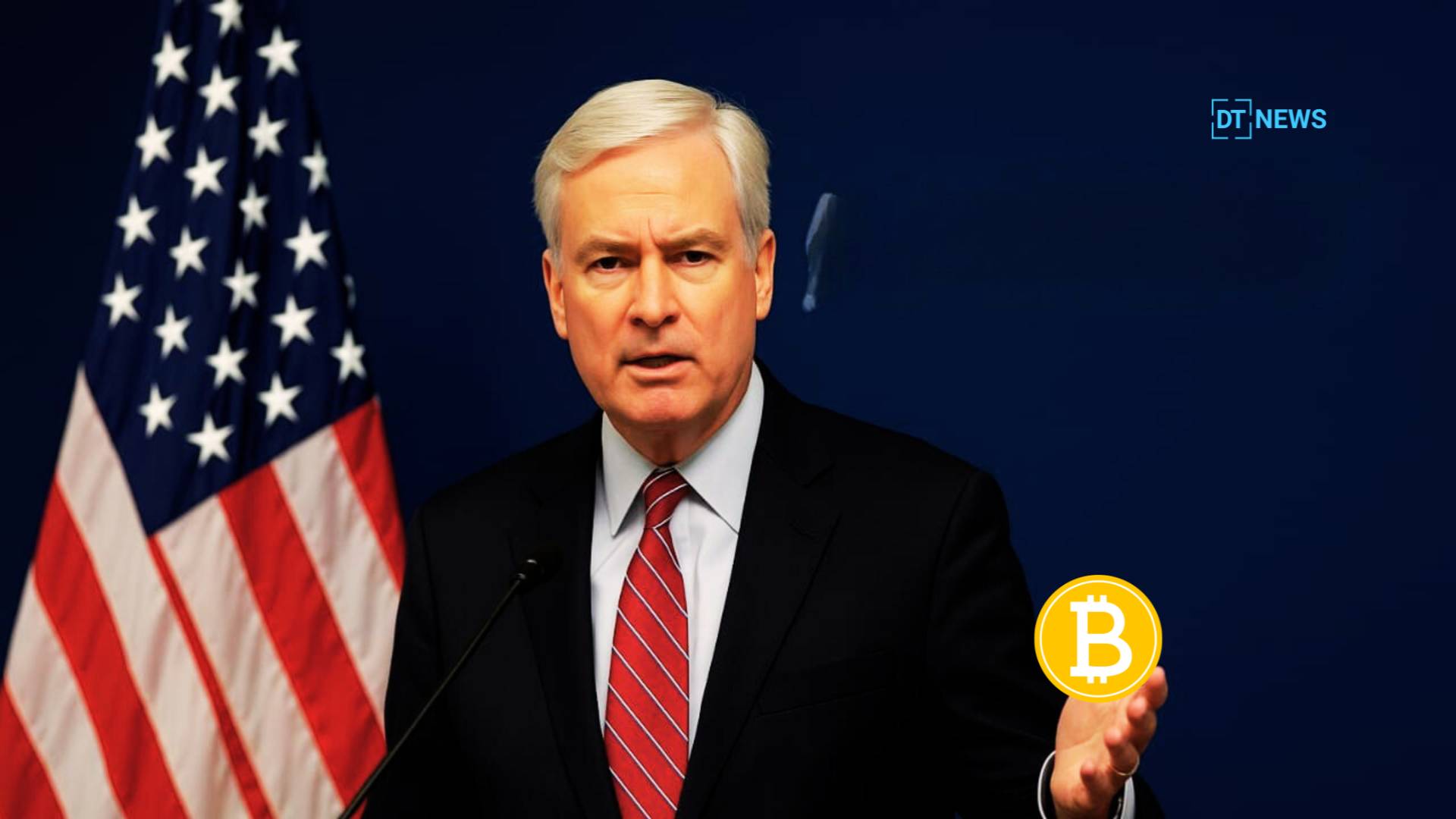According to sources, SEC project crypto marks an important change in how financial rules are made in the United States, with the goal of making the country a leader in the digital asset world. Paul S. Atkins presented the initiative at a policy forum focused on national priorities, where he outlined a new direction for crypto rules and emphasized the need to support innovation in the digital asset sector.
- What Does Project Crypto Intend to Change?
- How Will Custody and Licensing Rules Evolve?
- Will Decentralized Finance (DeFi) Benefit from Project Crypto?
- What Does This Mean for America’s Role in Crypto?
- Conclusion
- FAQs
- 1. Who launched SEC Project Crypto?
- 2. What is the main goal of SEC Project Crypto?
- 3. Which existing laws influenced the project?
- 4. What’s planned for custody regulations?
- 5. How does this impact the U.S. in global crypto?
- 6. What crypto activities will get new clarity?
- Glossary
It is based on the GENIUS Act and suggestions from the President’s Working Group on Digital Asset Markets. This move clearly shifts away from the past approach, which mostly focused on punishing companies instead of giving clear rules.
What Does Project Crypto Intend to Change?
At the core of the SEC project crypto is a plan to update the legal rules for crypto assets. The SEC aims to set clear and useful guidelines for how tokens are defined, stored, and traded. One of the most awaited changes in the SEC project crypto is the SEC’s move to update how the “Howey Test” is used to decide if a digital asset is a security.

Chairman Atkins said that most crypto assets are not securities and highlighted the need for clear and simple rules to remove confusion. This will help users and businesses navigate crypto rules confidently.
The SEC also aims to bring capital formation back to the U.S. through the SEC project crypto by setting clear rules for activities like initial coin offerings, airdrops, and staking. This would reduce the need for companies to depend on overseas or decentralized systems that are often used to avoid regulations.
How Will Custody and Licensing Rules Evolve?
A key part of the SEC project crypto is updating the rules for how crypto assets are stored. The project aims to remove restrictions like those in SAB 121, which many in the industry say have made it difficult for big institutions to get involved in crypto.
The SEC aims to support both self-custody by individuals, considered a core American value, and to establish clear and safe rules for companies that hold digital assets for investors under the SEC project crypto.
| Aspect | Brief Description |
| Project Crypto Launch Date | Announced by SEC on July 31, 2025 |
| Lead Authority | SEC Chair Paul S. Atkins |
| Core Objective | Crypto law upgrade for U.S. dominance. |
| Regulatory Focus Areas | Crypto classification, custody rules, tokenized securities, super apps, regulatory alignment |
| Crypto Asset Status Clarification | SEC to Clarify Howey Test, Reform ICO & Airdrop Rules |
| Super App Licensing | Single license for multi-service crypto firms |
| Industry Impact | Promotes U.S. capital formation |
| Supporting Reports | Based on White House report and SEC Crypto Task Force input |
Will Decentralized Finance (DeFi) Benefit from Project Crypto?
Decentralized finance, or DeFi, is likely to benefit a lot from the SEC project crypto. The plan shows that the SEC wants to update old market rules like Regulation NMS to make room for systems like decentralized protocols and automated market makers (AMMs).
Chairman Atkins said that U.S. rules need to move past old ways of thinking and support both traditional and decentralized systems. This would allow DeFi platforms, which now work in unclear legal areas, to operate more freely.
To support new ideas, the SEC is also looking into an “innovation exemption” under SEC project crypto. This would act like a sandbox, letting new business models start with flexible, temporary rules based on basic principles instead of strict requirements.
What Does This Mean for America’s Role in Crypto?
Atkins called SEC project crypto both a major update to the rules and a plan for the country’s future in digital finance. He made it clear that the U.S. will not sit back but will take the lead in building the next phase of financial innovation right at home.

This shows a strong shift away from the previous administration’s strict policies, which the SEC believes pushed money and innovation out of the country. The new plan aims to fix that and bring the U.S. back to the front of the digital finance world.
Public rule changes and feedback sessions with industry participants are expected to begin in the coming months under SEC project crypto, starting what could be a new chapter for crypto regulation in the U.S.
Conclusion
Based on the latest research, SEC project crypto is more than just a rule change, it’s a major shift in how the U.S. plans to handle digital finance. Experts say it’s a much-needed move to support the fast-growing crypto space, though some worry about gaps in enforcement. The SEC’s focus on clear rules and homegrown innovation shows it wants the U.S. to lead the future of crypto.
Catch daily crypto regulations and price forecasts on our platform.
Summary
SEC project crypto, launched by Paul S. Atkins, aims to update U.S. crypto laws and make the country a global leader in digital assets. It introduces clear rules for ICOs, custody, and DeFi, replacing older, strict approaches. The project backs self-custody, plans to ease strict rules like SAB 121, and promotes innovation with more flexible guidelines. Experts see it as a much-needed move to support growth and update regulations for the modern digital economy.
FAQs
1. Who launched SEC Project Crypto?
Paul S. Atkins at the America First Policy Institute.
2. What is the main goal of SEC Project Crypto?
To modernize U.S. crypto laws and support digital asset innovation.
3. Which existing laws influenced the project?
The GENIUS Act and suggestions from the President’s Working Group.
4. What’s planned for custody regulations?
Relaxing SAB 121 and allowing safer self and third-party custody.
5. How does this impact the U.S. in global crypto?
It aims to position the U.S. as a leader in digital asset regulation.
6. What crypto activities will get new clarity?
ICOs, airdrops, staking, custody, and trading rules.
Glossary
SEC Project Crypto- U.S. push to refresh crypto rules and back innovation.
GENIUS Act- Law proposal guiding smart updates to crypto policy.
Airdrops- Free token drops to grow user base or reward holders.
SAB 121- SEC rule limiting how firms can store crypto.
Innovation Exemption- A trial zone for startups to test crypto ideas freely.






































